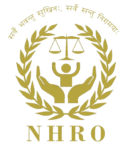
Human rights are fundamental rights and freedoms that are inherently possessed by all individuals simply by virtue of being human. They are universal, inalienable, and indivisible, meaning they apply to every person regardless of their race, ethnicity, nationality, religion, gender, sexual orientation, political affiliation, or any other status. Human rights are protected by international law, which includes treaties, customary international law, general principles, and other sources.
Some key principles of human rights include:
1. Universality: Human rights apply to everyone, everywhere, regardless of nationality, ethnicity, religion, or any other characteristic.
2. Inalienability: Human rights cannot be taken away or surrendered, even if a person violates the rights of others.
3. Indivisibility: All human rights are interconnected and interdependent. The fulfillment of one right often depends on the fulfillment of others.
4. Equality and Non-discrimination: All individuals are entitled to enjoy human rights without discrimination based on race, color, sex, language, religion, political or other opinion, national or social origin, property, birth, or other status.
5. Human Dignity: Human rights are grounded in the inherent dignity of every human being.
Common examples of human rights include the right to life, freedom from torture and slavery, freedom of speech and expression, the right to education, the right to work and to fair wages, the right to participate in government and free elections, the right to a fair trial, and the right to freedom of religion or belief.
International documents such as the Universal Declaration of Human Rights (UDHR), the International Covenant on Civil and Political Rights (ICCPR), and the International Covenant on Economic, Social and Cultural Rights (ICESCR) outline many of these rights and provide a framework for their protection and promotion by governments and international organizations.
10 Reasons Why Human Rights are Important
The National Human Rights Organization (NHRO) is a globally recognized organization comprised of diverse corporate entities aligned with individuals who vehemently oppose injustice and human rights violations. Renowned for its strategic use of research, advocacy, action, and targeted campaigns, NHRO, INDIA is at the forefront of combating human rights abuses worldwide. Central to our approach is the dissemination of informed public discourse. NHRO, INDIA addresses a broad spectrum of critical issues, encompassing women’s rights, political freedoms, regional conflicts, and digital security solutions.

